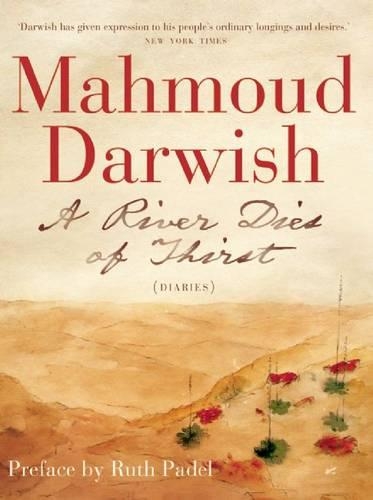
A River Dies of Thirst: A Diary
(Paperback, 2nd edition)
Available Formats
Publishing Details
A River Dies of Thirst: A Diary
By (Author) Mahmoud Darwish
Translated by Catherine Cobham
Introduction by Ruth Padel
Saqi Books
Saqi Books
3rd August 2009
2nd edition
United Kingdom
Classifications
General
Non Fiction
892.717
Physical Properties
Paperback
272
Width 200mm, Height 155mm
Description
'A person can only be born in one place. However, he may die several times elsewhere: in the exiles and prisons, and in a homeland transformed by occupation and oppression into a nightmare. Poetry is perhaps what teaches us to nurture the charming illusion: how to be reborn out of ourselves over and over again, and use words to construct a better world, a fictitious world that enables us to sign pact for a permanent and comprehensive peace with life.' Mahmoud Darwish Mahmoud Darwish was one of the most acclaimed contemporary poets in the Arab world, and is often cited as the poetic voice of the Palestinian people. During the tumultuous summer of 2006, as Israel attacked Gaza and Lebanon, Darwish was in Ramallah. He recorded his observations and feelings in writing included in A River Dies of Thirst, some of his last work. In this collection Darwish writes of love, loss, and the pain of exile in bittersweet poems and diary entries leavened with hope and joy.
Reviews
'The book begins with a series of pieces addressing the suffering in Gaza, West Bank and Lebanon in the summer of 2006, with a mixture of satire and gravity: "heroism too has its sell-by date" and "the house as casualty is also mass murder". When Darwish asks himself about hope he "construct[s] a mirage" and goes on searching "in his desk drawers for the person he was before asking this question". "Hope is not the opposite of despair," he writes. "It is a talent." And "suffering is not a talent" but a test of it. And indifference is "one aspect of hope". Throughout the book Darwish delights in prose narratives or poem fragments that came to him between sleep and wakefulness, dream and imagination. These diaries are also writings about writing, and we stroll gentlywith him on his private walks, where his imagination becomes one of his other selves, "a faithful hunting dog", as young girls throw pistachios at him and call him "uncle". While "he sees himself as absent ... to lighten the burden of the place," he observes his surroundings with a revelatory clarity: clouds are a silk shawl caught in the branches of a tree, or like soap bubbles in the kitchen sink that dissolve into forgotten words. A "rustling" is "a feeling searching for someone to feel it". And "jasmine is a message of longing from nobody to nobody." A River Dies of Thirst lures its translator's imagination into several possibilities of form and lyric as testament to the mastery Darwish possessed in Arabic. Catherine Cobham's translations sway delicately between mystery and clarity, giving a rendition of the master's voice that should impress both those reading Darwish's work for the first time and those who are already familiar with it.' Fady Joudah The Guardian; 'Darwish has given expression to his people's ordinary longings and desires.' The New York Times
Author Bio
Mahmoud Darwish (1942-2008) was born in the village of al-Birweh in Galilee, Palestine. His family fled to Lebanon in 1948 when the Israeli Army destroyed their village. He has written over twenty books of poetry and several books of essays, including Memory for Forgetfulness: August, Beirut, 1982. He has won the Lenin Peace Prize, the Lannan Prize for Cultural Freedom, the Chevalier des Arts et des Lettres from France and the Prince Claus Award from the Netherlands.
